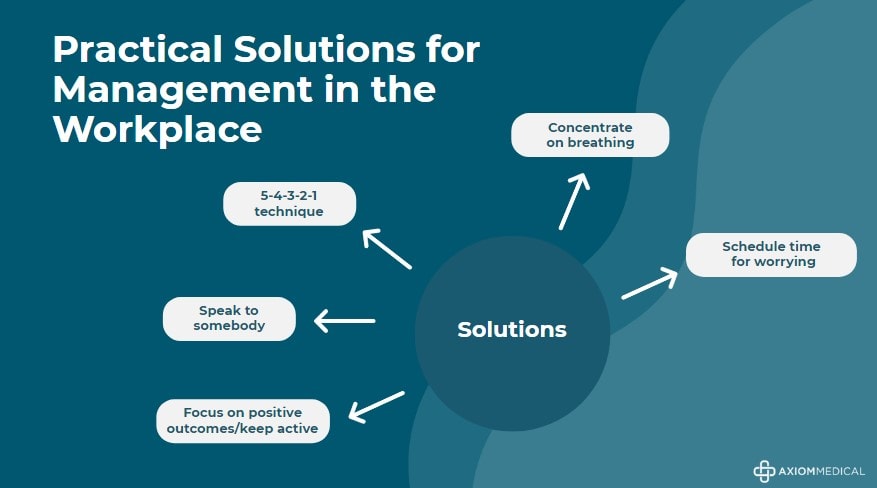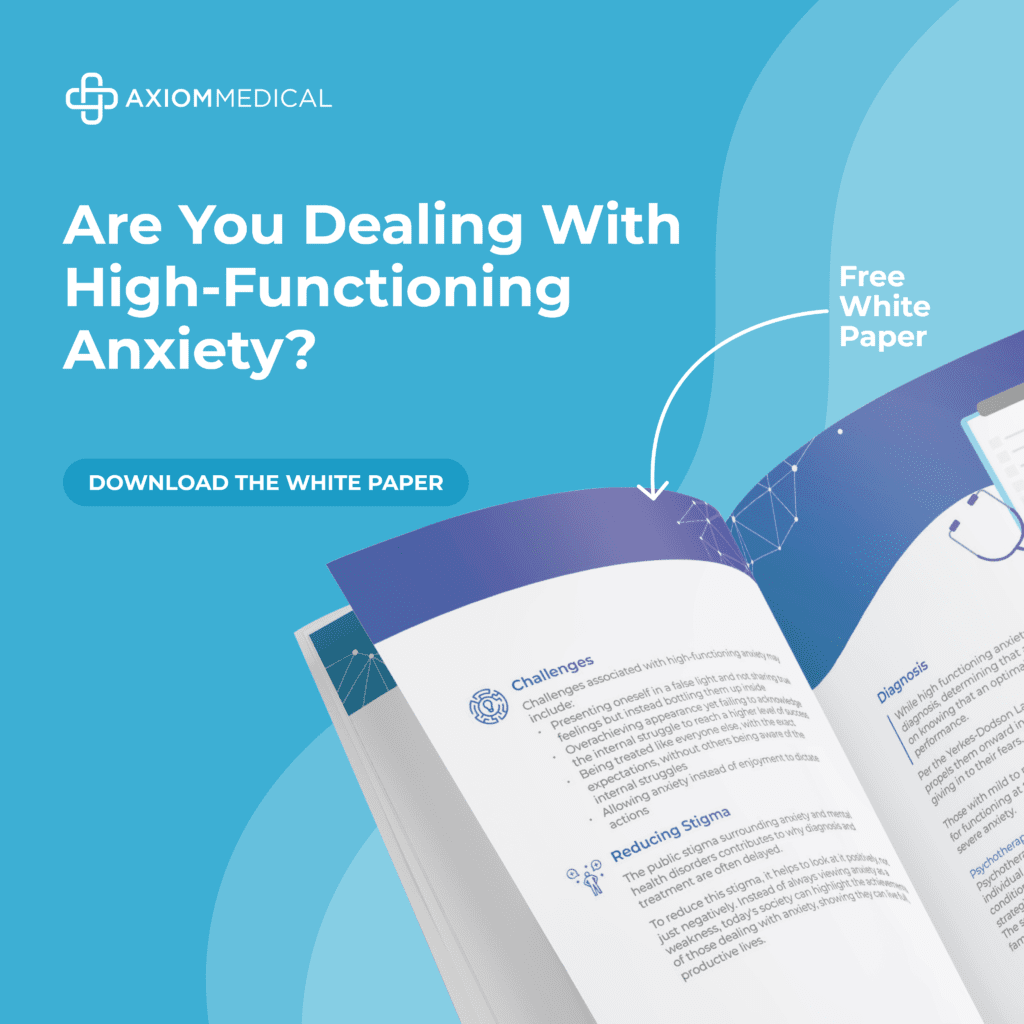HFA or High-functioning anxiety in the workplace is an often-overlooked problem. In fact, it is a catch-all term for people who live with anxiety, but don’t necessarily consider themselves to be suffering from an actual mental illness.

Anxiety affects thousands of people each year, often leading to challenges in everyday life. Yet, while it can be debilitating for many, others remain highly productive, indicating they may be experiencing what is known as high-functioning anxiety.
Studies on High-Functioning Anxiety
According to the National Institute of Mental Health (NIMH), 19% of American adults in the United States have an anxiety disorder. Many people may consider themselves to fall into the “high-functioning” group, but it’s difficult for them to know exact stats. In fact, HFA is a common problem in the workplace, which remains undetected most of the time. If you have high-functioning anxiety, you probably notice your anxiety pushing you forward rather than leaving you frozen in fear. On the surface, it seems like you’re doing well. But, on the inside, you might not feel so good.
What Are the Characteristics of High-Functioning Anxiety
High functioning anxiety is not officially recognized as a diagnosis within DSM-V, the manual used by mental health professionals for diagnosing such clinical conditions or disorders.
However, if you’re experiencing high-functioning anxiety, you may be experiencing anxiety symptoms, but you continue to function normally in your daily life, including at work, school, or in social situations.
Most people who suffer from anxiety disorders tend to be quite well-mannered on the outside. They seem to be very organized, focused, and successful. But inside, they often feel anxious, worried, and fearful.
What Is High-Functioning Anxiety in The Workplace?
Over-functioning in the workplace is an indicator of high-functioning anxiety at work. People with high-functioning social anxiety may feel like they’re stuck in a vicious cycle where they doubt themselves and their abilities. They’re always trying to cope by distracting themselves from their thoughts.
What are The Common Challenges of High-Functioning Anxiety?
High-functioning anxiety is difficult to spot because being an overachiever is often a desirable trait in today’s “productivity-obsessed” society. High-functioning people are often regarded as top performers and overachievers. However, this perception is wrong because it fails to consider the struggles (and, perhaps, anxieties) required to reach that level of success.
Most people who know you may not suspect you struggle with daily anxiety. You know deep down that your anxiety limits your ability to live a full life. You may be able to accomplish certain tasks, but feel your life is restricted by other factors (for example, you don’t do things outside your comfort zone).
If you have high-functioning anxiety, you’ve likely developed an ability to present a false persona to the outside world and never let your true feelings out. Instead, you bottle everything up inside and compartmentalize your feelings with a plan for dealing with them later. But later never comes. Your actions are probably driven by your anxiety. You may choose activities that calm your mind rather than pursue activities because you’d enjoy them, or because you think they’d broaden your horizons.
How Can Employers Help?
While high-functioning anxiety is not an official clinical diagnosis, determining whether an individual has it relies on knowing that an optimal level of anxiety can fuel performance. Employers can always work toward reducing the stigma in the workplace and encourage awareness. High-functioning anxiety can be easily managed with diagnosis and treatment.
What Are The Common Signs?
It’s true; Our coping skills develop into habits that exhaust and deplete us, further masking the condition.
However, you will want to keep these common signs on your radar:
- You’re doing more than what’s expected.
- You are always available for extra work.
- It is very difficult for you to say no at work.
- You always arrive early to the meetings.
- You feel proud to be busy.
- Relaxing makes you anxious.
- You struggle with low self-confidence.
- A strong desire to finish projects.
- Perfectionism.
- Seeking control over decisions or situations.
- Easily distracted when talking with someone else.
- Always “engaged” appearance.
- Skipping vacations and not taking PTOs.
Practical Solutions in The Workplace:
Practical solutions for managing high-function anxiety in the workplace include:
- Breathing exercises
- Focusing on counting backwards (the 5-4-3-2-1 technique)
- Speaking to a good listener
- Staying active and focusing on positive outcomes

Reducing Stigma
When you feel isolated, it’s harder to connect with others. With more people talking about and identifying with having “high-functioning anxiety,” it may become easier for them to seek help.
Anxiety is not a weakness; rather, it is a natural human emotion that we all experience at some point in our lives. By reducing stigma, society has been able to highlight when people with an anxiety disorder are able to live full, productive lives.
Diagnosis and Treatment
While high-functioning anxiety may not be life-threatening, living with it can be exhausting. Taking time to find out more and learning to cope will be beneficial in your wellness journey. A mental health professional facilitates treatment for managing any form of anxiety.
Examples of the treatments available include:
- Psychotherapy
- Cognitive-behavioral therapy (CBT)
- Acceptance and Commitment Therapy (ACT)
- Eye movement desensitization and reprocessing (EMDR)
- Specialized medications, such as SSRIs (selective serotonin reuptake inhibitors)
- Alternative treatments, such as mindfulness training
- Dialectical behavioral therapy (DBT), blending CBT and mindfulness techniques of change and acceptance
- Combination of treatments
High-functioning anxiety is one of the few stressors often associated with the workplace. Employers can help their workforce by offering access to mental health first-aid care and support.
Get Our High-Functioning Anxiety Whitepaper!











